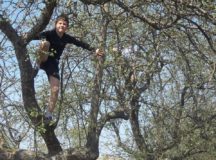If all the food that’s thrown away in three American cities could be saved, it would provide 68 million meals for people who don’t have enough to eat, according to a recent study.
A team of researchers in the United States spent a week looking through the garbage bags of 1,151 people living in Denver, New York and Nashville. The researchers wanted to know what kind of food was being thrown away, how much there was, and why it was being tossed.
By asking these questions, the researchers hoped to find ways to reduce the amount of food we throw away, and to give some of that food to people who need it.
The researchers found that, in the cities they surveyed, more than a kilogram of edible food per person is wasted each week. (Edible food is food you can eat. It doesn’t include things like apple cores, egg shells, or bones from meat.)
Fruits and vegetables were the most common edible foods found in the trash, followed by food leftover from meals. Eggs, bread and milk were also commonly thrown out.








